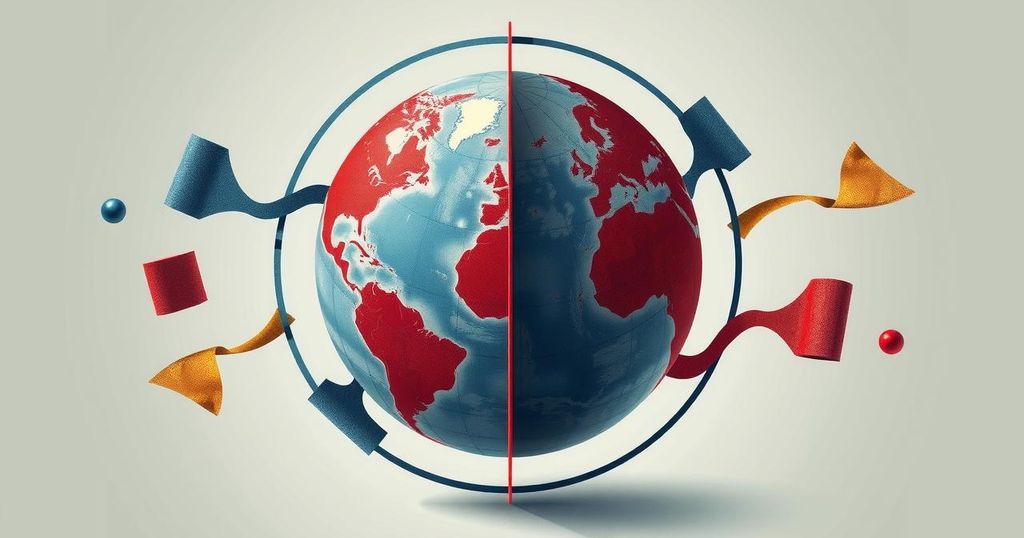Trump’s controversial proposal to relocate Palestinian residents from Gaza to regions in Somaliland, Puntland, and Morocco faces widespread rejection. Historical instances of Palestinian displacement inform current opposition from local governance and public sentiment. The complexities around this issue highlight ethical concerns regarding sovereignty, demographic stability, and international relations, particularly in light of Palestine’s right to self-determination.
US President Donald Trump has stirred controversy by suggesting the relocation of Palestinian residents from Gaza to Somaliland, Puntland, and Morocco, as reported by Israeli Channel 12. This proposal, reminiscent of earlier discussions about transferring Gaza’s population, has sparked widespread backlash and skepticism from various quarters. Trump’s remarks were made just prior to a meeting with Israeli Prime Minister Benjamin Netanyahu, emphasizing a reconstruction approach for Gaza instead of territorial annexation.
The notion of displacing Palestinians is not a novel concept; historical precedents include the Israeli military’s expulsion of 200,000 Palestinians to Jordan in 1967. Former Israeli officials have previously explored the relocation of Gaza’s population to locations such as Iraq, Canada, and Brazil. The U.S. has also floated ideas of transferring Palestinians to Indonesia, highlighting continuous discussions on this sensitive issue.
Somaliland and Puntland, both unrecognized territories in Somalia, along with Morocco, have firmly rejected these resettlement plans. Mohamed Mubarak, head of Puntland’s security coordination office, stated that Puntland had not been consulted about the proposal and emphasized the Palestinians’ rights to peace in their homeland.
A source from the Somaliland government reiterated that there would be no displacement and questioned the double standards present in recognizing legitimate national self-determination among Arab nations. Abdiwahab Sheikh Abdisamad, a Somali expert, noted the absence of an official Somali government statement on this proposition, interpreting current discussions as media narratives rather than confirmed policies.
Moreover, Abdisamad indicated that Somali society does not have the capacity to accommodate Palestinian immigrants politically or economically. Concerns were raised about the potential for destabilization across the Horn of Africa should such relocations occur, especially regarding the demographic implications for local populations.
Abdirashid Hashi, a Somali analyst, characterized Trump’s proposal as a “sick joke,” emphasizing that it reflects an unethical approach to resolving the Palestinian predicament. Abdikarin Dahir, a Somali geopolitical analyst, highlighted the upcoming summit in Cairo, where Somalia’s stance on these issues will be formally presented.
Mourabet draws attention to Somalia’s divided state and speculates that Trump aims to manipulate this situation by courting Puntland and Somaliland for political recognition. However, statements from Puntland officials reveal a desire for a political deal rather than outright acceptance of Trump’s proposal.
Public sentiment in Morocco has also been strongly against any displacement of Palestinians, consistent with prior protests against Israeli actions in Gaza. Moroccans view such proposals as politically controversial and caution against manipulation by international powers pursuing their agendas.
Reports indicate that while Trump’s comments may add a new dimension to negotiations between Israel and Palestinian entities, they have been met with significant resistance from both Palestinian rights advocates and Somali political leaders. Strong opposition is likely to persist in light of the historical complexities surrounding these discussions.
In summary, Trump’s proposal to relocate Palestinians to Puntland, Somaliland, and Morocco has met with widespread objections from both local authorities and the Palestinian community. Given the historical context of displacement, the strong local opposition reflects concerns over sovereignty, stability, and international manipulation. These dynamics underscore the ongoing complexities of the Palestinian issue, revealing that any such proposal is likely to face enduring resistance. Public and political sentiments in both Morocco and Somalia stress the importance of the Palestinians’ right to self-determination, making the proposal both contentious and unviable. The upcoming discussions among Arab nations may further clarify Somalia’s position, reasserting support for Palestine.
Original Source: www.dailynewsegypt.com




